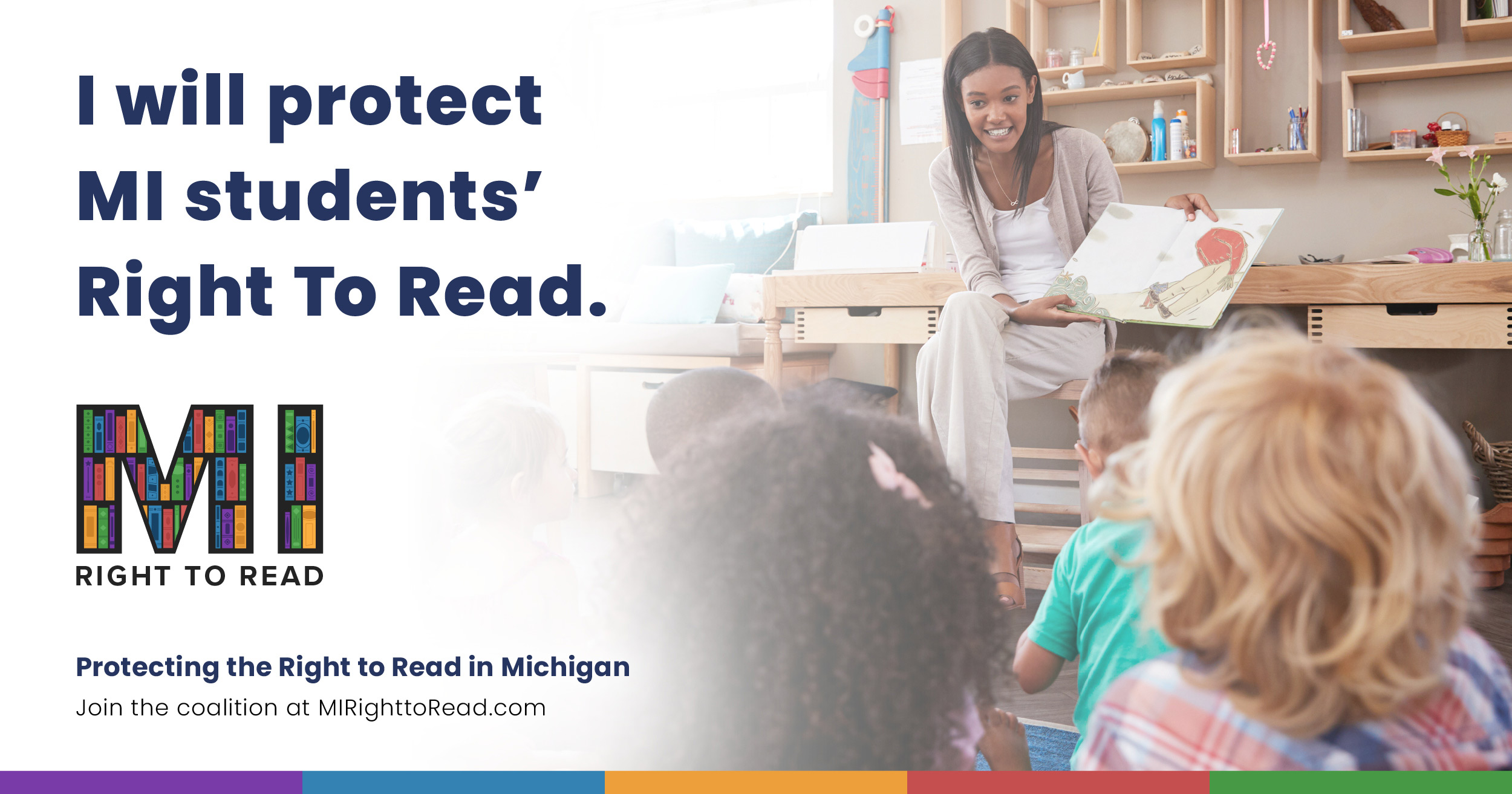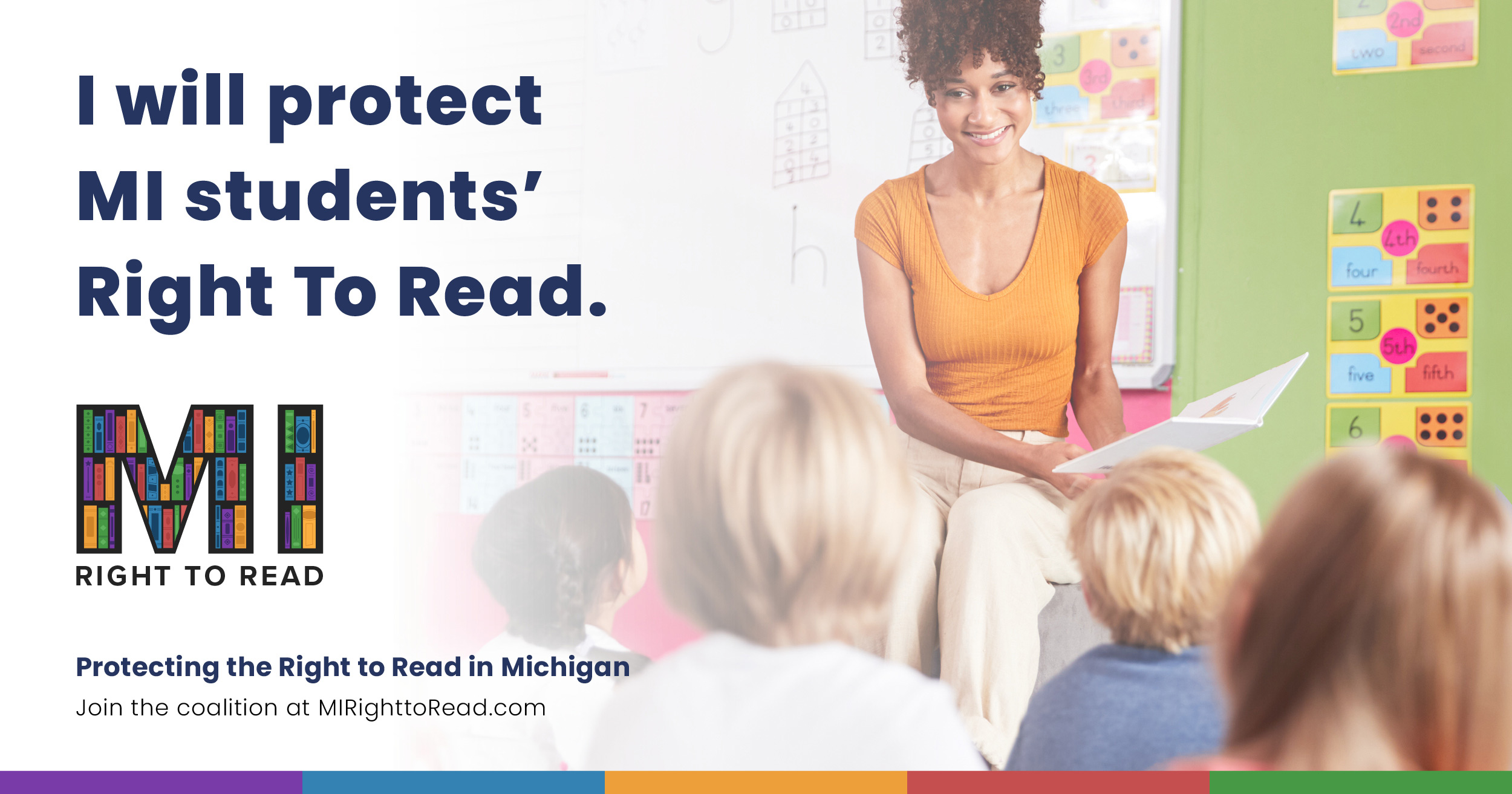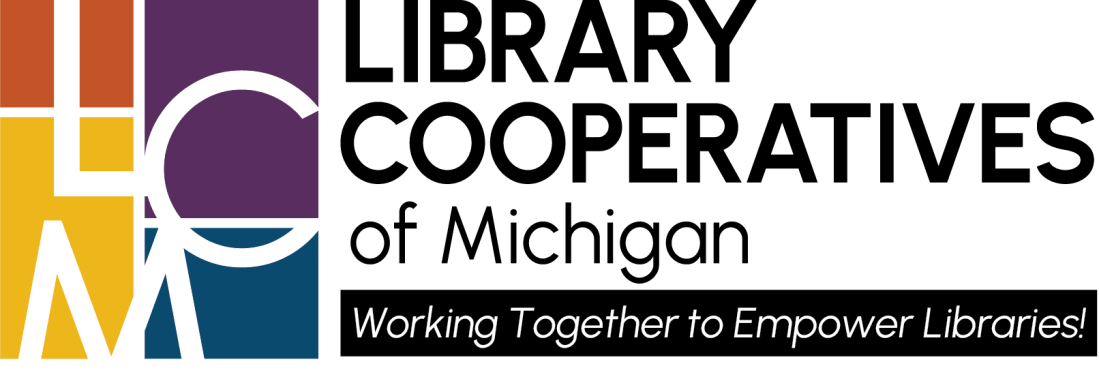- About
- Membership
- Education & Events
- Event Calendar
- Annual Conference
- Spring Institute for Youth Services
- Think Space
- Surviving and Thriving as a Public Library Director
- Leadership Academy
- Michigan Library Advocacy Day
- Youth Summit for the Right to Read
- Advocacy Hour
- MLA Connect
- MLA Connect On Demand
- Call for Proposals
- Vendor and Sponsor Opportunities
- Future Event Dates and Locations
- Programs & Services
- Advocacy
- News
- Job Board
|
Intellectual Freedom Home | MI Right to Read | TOOLKIT | Message Center | Request Advocacy Resource Funds Message Center
Contact UsWebsite: MIRightToRead.com Building a coalition? Consider purchasing MI Right to Read shirts for your team! Show support and build your own brand by wearing the same color. Profits support the MI Right to Read coalition.
Using the Message CenterWe want to make it easy for you to amplify your voice with positive and proactive messages that can be used in five different scenarios:
Click on the above links to jump to a section.
Post on Social MediaSocial Media Tips
Images and Posts for Social Media Please download and share the images below! Tag us @MIRightToRead on Twitter and Facebook!
Submit a Letter to the EditorTips for writing a letter to the Editor
Sample letters and additional tips
Speak Up at Your Local School, Library, and Municipal MeetingsTips for delivering a strong message on censorship at meetings
Sample script and additional tips
Give a Presentation at Your Local Service ClubBring in local organizations and service clubs such as Rotary Clubs, Kiwanis, your Chamber of Commerce, or local charities. Attend their meetings, raise awareness of the importance of intellectual freedom, and make connections. Know your stuff and be ready to share with individuals and local organizations!
Grow the CoalitionHelp us grow a strong and robust coalition to protect the right to read in Michigan!
MediaContact us for interviews, statistics, and more information. Statements from Michigan Organizations Regarding CensorshipGovernor’s Educator Advisory Council Statement on Banning Books and Censorship of Education Have we forgotten what a public library is for? By Deborah E. Mikula and Loren Khogali Michigan Library Association Statement of Principle on Intellectual Freedom A Guest Editorial from the MLA Intellectual Freedom TaskforceView this letter as a PDF here. Libraries fill a role in upholding rights that are guaranteed by the First Amendment of the United States and central to any functioning democracy: the rights of citizens to read, seek information, and speak freely. In the spirit of that role, we owe it to every community member to provide material of interest to them on our library shelves. Across our nation, at school and public library board meetings, we are witnessing an unprecedented uptick in the number of book challenges, most targeting works engaging with concepts of race and gender. Libraries recognize that parents or guardians have the right and responsibility to make decisions about what materials are suitable for their own families. And we also stand united in our belief that no one has the right to make rules restricting what other people read, or to make decisions for other families. The presence of any reading materials in a library collection does not imply endorsement of the ideas expressed in those materials. The library is simply doing its job to provide a wide variety of views and expressions—if the library “endorses” anything, it is your right to access a broad selection of materials. As champions of access, the Michigan Library Association is proud of the hard work being performed by trained and certified librarians across Michigan. They are committed to curating collections that allow every person to see themselves in the books and resources their libraries provide, choosing a broad range of subject matter that reflect diverse experiences. This is a core tenant of librarianship and one that helps ensure America lives up to its constitutional promise to protect intellectual freedom. Key findings from a March 2022 study conducted by Hart Research Associates and North Star Opinion Research on behalf of the American Library Association found that large majorities of voters (71%) oppose efforts to have books removed from their local public libraries, including a majority of Democrats (75%), independents (58%), and Republicans (70%). Most voters and parents hold librarians in high regard, have confidence in their local libraries to make good decisions about what books to include in their collections, and agree that libraries in their communities do a good job offering books that represent a variety of viewpoints. In early May, MIRightToRead.com was launched to bring focus to the right to read for all Michiganders. We urge parents, students, teachers, librarians, and anyone who supports intellectual freedom to visit the website and join the growing coalition. Ryan Wieber Dillon Geshel Deborah E. Mikula
|















